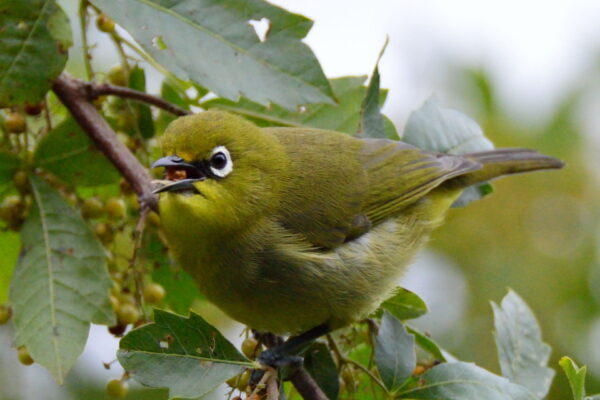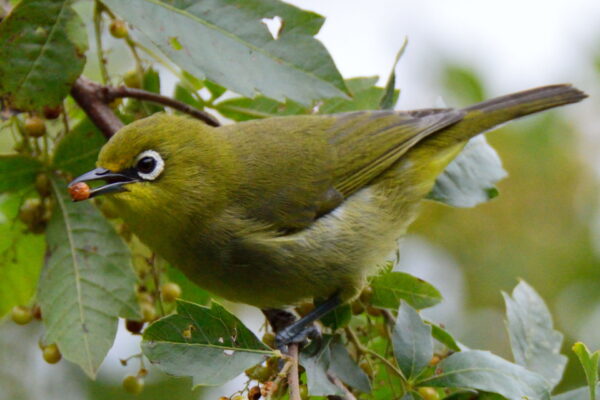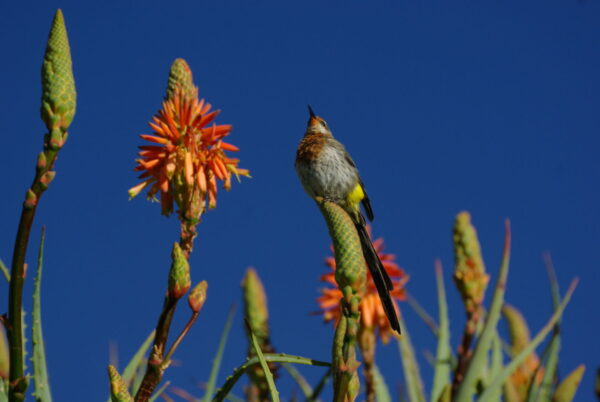Three days of cold, two of them windy, did not bode well. One day was the coldest for many years, really crackly frost and icicles.
But the Cape White-eyes did what is typical for the time of year. The young of summer are now fully independent, so join their parents, and lots of other families too, in a great roving flock. When insects are in short supply, and vegetable food adequate, it makes sense for omnivores to switch feeding mode. Also good sense is to abandon territory since it may not contain any fruit at all, whereas there may be enough for everybody somewhere else. So it proved. At least 30 raided a Celtis for 10 minutes or so, only leaving when all the half-opened new flowers had been eaten. This is a form of piracy, Celtis would have been aggrieved.
By contrast, insect eaters have a hard time. Competition can be fierce, even between species. At the edge of Leucosidea scrub forest a Fiscal Flycatcher was poised, watching the ground below. A pair of Cape Robin-Chats appeared in the target area, and was immediately driven away. It might seem strange that one defeats two, but often in the bird world an ambush aggressor wins the day.
Most of the common aloes had finished flowering, but a few Aloe marlothii remained. Gurney’s Sugarbirds were attending. These are orthodox pollinators, collecting pollen on the head while probing the floret. But they appeared not to like this part of the deal because after each probe a vigorous head shake was clearly intended to get rid of the yucky pollen.
Star of the winter show, and not for the first time, was the Fairy Flycatcher, darting around Charleswood dam.




Greetings.
Where at The Carven can one do birding?
I have done a hike before but can’t remember seeing birds.
Thank you.
Hi Fezekile
The birds are in all areas on the property from the forest to the grasslands to the dams… Early morning birding in the gardens is particularly good. Next time you visit, we can point you in the right direction!
Best wishes,
Megan